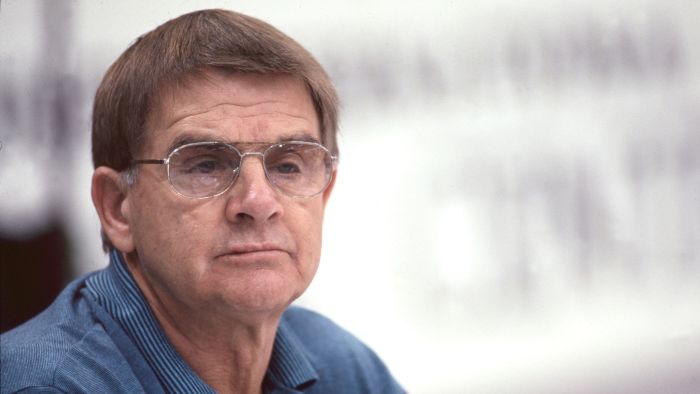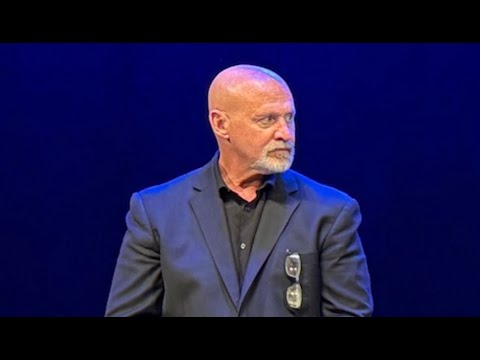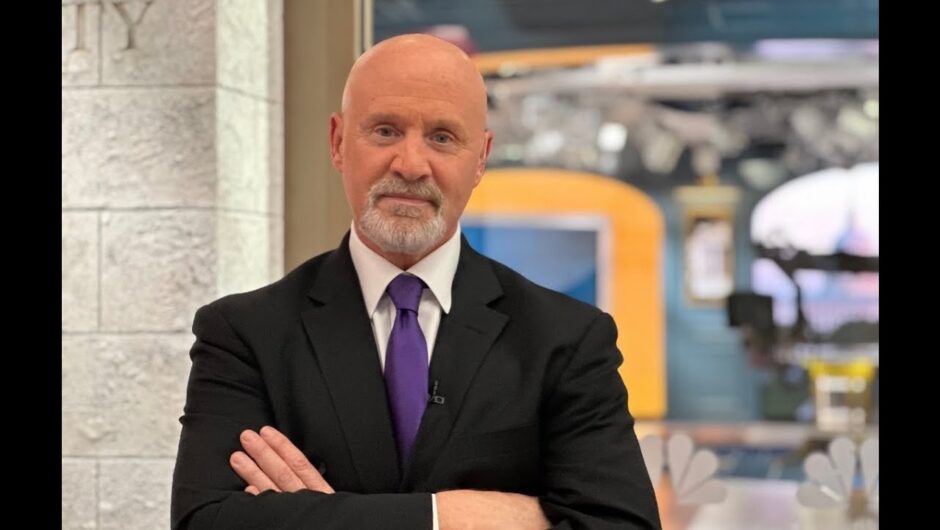Tributes are flowing for the Australian swimming coach and sports administrator, Don Talbot, who has died peacefully on the Gold Coast, aged 87.
Key points:
- Australian swimming coach Don Talbot has died, aged 87
- He led Australia’s swim team for successful stints in the 60s, 70s, 90s and early 2000s
- Talbot was also at the helm when Australia won five gold medals in the pool at the Sydney Olympics
His son, Scott Talbot, a former New Zealand Olympic swimmer and Australian coach said: “Don was tough till the end and fought on strongly for a long time, finally succumbing to the complications with dementia.”
Talbot was one of the leading coaching figures in world swimming for almost half a century, leading Australia’s swimming team for two successful stints in the late 60s and 70s and again throughout the 90s and early 2000s.
The highlight of Talbot’s stint in charge was Australia’s performance at the 2000 Olympics, where the team led by Ian Thorpe, Grant Hackett and Susie O’Neill won five gold among 18 medals.
He was known as a strict disciplinarian, but his methods achieved enormous success across five decades.
“Talbot had a real focus and skill in getting the best out of you,” said Graham Windeatt, who broke the 800 metres world record and won an Olympic silver medal in 1972 under Talbot’s coaching.
“He was very domineering, he was very confident.
“He was very focused, always trying to do the best for you as a swimmer.”
AOC President John Coates said Don was a “special kind of man.”

Talbot was born in 1933 — the second of six children — and grew up in Barnsley, a township near Newcastle, before the family moved to Bankstown.
He began swimming after nearly drowning as a child, an incident that prompted his mother to enrol Talbot and the family in swimming lessons.
Although he achieved some success as a junior swimmer, he came to prominence as a coach with his discovery in the early 1950s of John and Isla Konrads — two Latvian immigrant siblings who were attending Revesby Primary school where Talbot was teaching.
Talbot coached the siblings for two hours each morning before school and then another two hours after school at the Bankstown pool.
Together they broke 37 world records under Talbot’s guidance in distances from 400 to 1,500 metres, and John Konrads won gold in the 200 metres at the 1960 Rome Olympics.
He was named head coach of the Australian men’s team prior to the 1964 Tokyo Olympics and held the position until 1972.
Loading
During that time, he coached Kevin Berry, Bob Windle, Beverly Whitfield and Gail Neall to Olympic gold medals.
Windeatt said Talbot was always at the “cutting edge”.
“Cutting edge in those days was high intensity training, but very long training,” he said.
“By the time I was 14 or 15, I was swimming 30 hours a week, I was doing up to 120 kilometres a week swimming.”
For most of the 1970s, Talbot coached and studied in Canada and the US, before returning to Australia when he was appointed as the inaugural director of the newly built Australian Institute of Sport in Canberra.
“He really set what a high performance culture was for sport in this country,” said Greg Blood, AIS librarian from 1983 until 2011.
“He understood what was required to get an athlete to a gold medal — that was a culture of not just pushing the limits, but not giving up.”
In 1983, he was appointed as Canada’s head swimming coach, a position he kept for five years.
Loading
Talbot returned to Australia in 1989 to take up the head coach position for what was then Australian Swimming, despite opposition from some of Australia’s veteran swimmers, who claimed he was too autocratic.
He held the position for 12 years.
“He was uncompromising in the approach, like if someone did something wrong in the workout, the whole pool would start again,” Windeatt said.
“Talbot exuded forceful confidence and direction, and that’s why he did well because the other coaches would draw from him.”
Australia’s current head coach, Rohan Taylor remembered Talbot as “larger than life.”
“His ability to motivate and lead me as a young coach (meant) I learnt a lot of what it means to be a high performance coach and a high performance person and how you carry yourself,” Taylor said.
At the 2001 World Championships, Talbot’s swimmers won 13 gold medals, ahead of the US with nine.
Talbot was inducted into the International Swimming Hall of Fame in 1979 and the Sport Australia Hall of Fame in 1990.
In 1981, Talbot was made an Officer of the Order of the British Empire (OBE) for his services to sport, and in 2007 he was named an Officer of the Order of Australia (AO).
Talbot is survived by his five children and a nephew he raised along with 12 grand-children and 16 great-grand-children.







